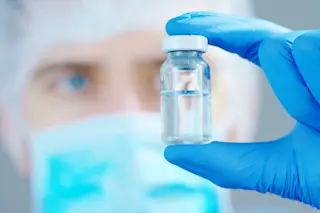SARS-CoV-2 might soon become the 26th pathogen that U.S. health officials can immunize against. And while none of us will soon forget the coronavirus pandemic, widespread vaccinations throughout time have helped the public forget the threats that other pathogens carry.
As the COVID-19 pandemic persists in the U.S., some caregivers have put off bringing children in for routine shots. There’s been a large decline in immunizations, and it’s becoming worrisome, says Angela Myers, the director of the infectious disease division at Children’s Mercy Kansas City.
“We cannot forget about the importance of childhood vaccines in the middle of this,” Myers says. If those delays continue, measles and other illnesses could surge. People might get a glimpse of what it would be like without vaccines.
For example, institutions like Children’s Mercy Kansas City see one to two cases a year of Haemophilus influenzae type b, or Hib, says Myers. Before the ...














